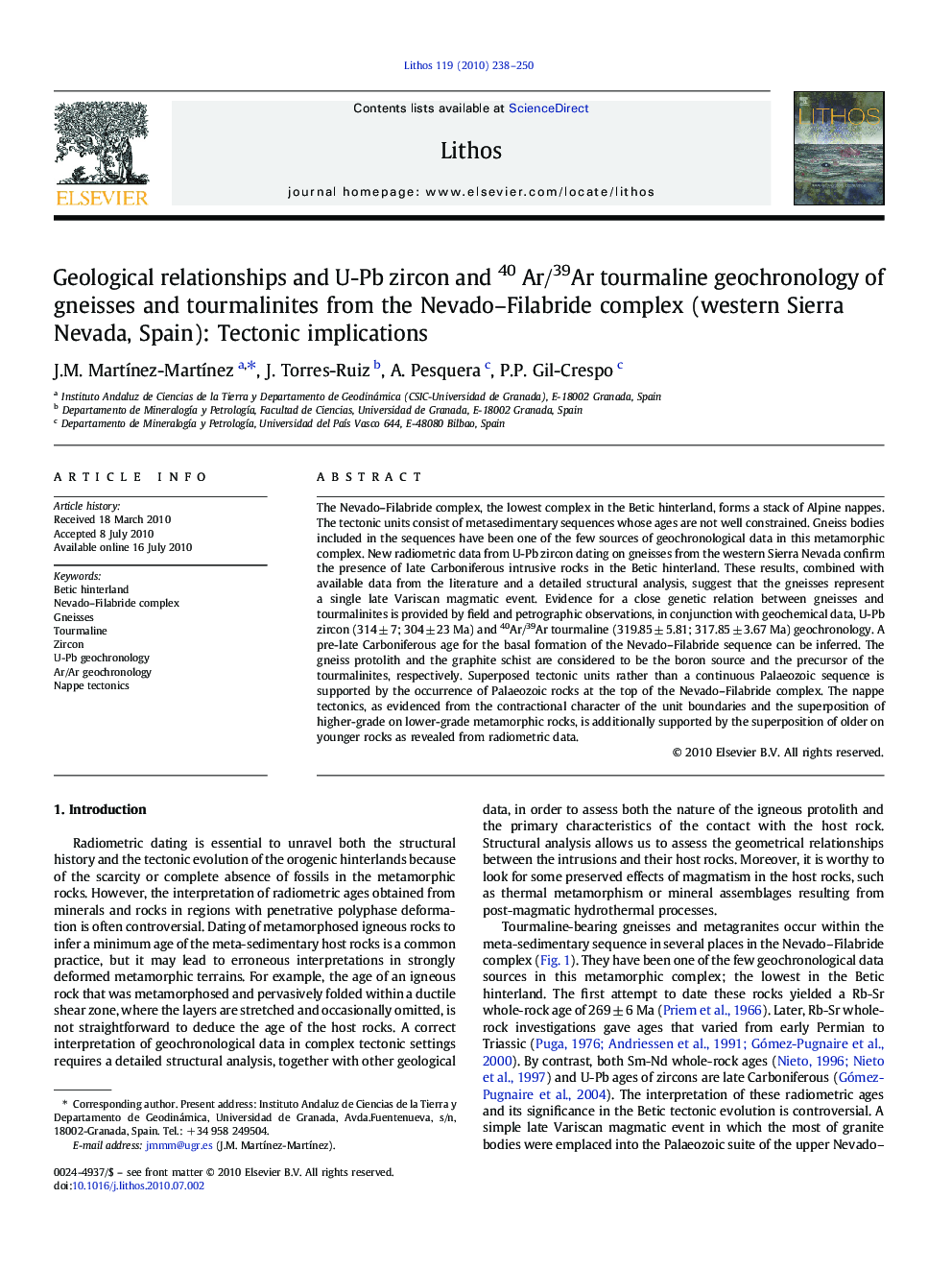| کد مقاله | کد نشریه | سال انتشار | مقاله انگلیسی | نسخه تمام متن |
|---|---|---|---|---|
| 4716872 | 1638728 | 2010 | 13 صفحه PDF | دانلود رایگان |

The Nevado–Filabride complex, the lowest complex in the Betic hinterland, forms a stack of Alpine nappes. The tectonic units consist of metasedimentary sequences whose ages are not well constrained. Gneiss bodies included in the sequences have been one of the few sources of geochronological data in this metamorphic complex. New radiometric data from U-Pb zircon dating on gneisses from the western Sierra Nevada confirm the presence of late Carboniferous intrusive rocks in the Betic hinterland. These results, combined with available data from the literature and a detailed structural analysis, suggest that the gneisses represent a single late Variscan magmatic event. Evidence for a close genetic relation between gneisses and tourmalinites is provided by field and petrographic observations, in conjunction with geochemical data, U-Pb zircon (314 ± 7; 304 ± 23 Ma) and 40Ar/39Ar tourmaline (319.85 ± 5.81; 317.85 ± 3.67 Ma) geochronology. A pre-late Carboniferous age for the basal formation of the Nevado–Filabride sequence can be inferred. The gneiss protolith and the graphite schist are considered to be the boron source and the precursor of the tourmalinites, respectively. Superposed tectonic units rather than a continuous Palaeozoic sequence is supported by the occurrence of Palaeozoic rocks at the top of the Nevado–Filabride complex. The nappe tectonics, as evidenced from the contractional character of the unit boundaries and the superposition of higher-grade on lower-grade metamorphic rocks, is additionally supported by the superposition of older on younger rocks as revealed from radiometric data.
Research Highlights
► Tourmalinites in the host rocks confirm the intrusive nature of the Nevado–Filabride gneisses.
► U-Pb zircon dating reveals a late Carboniferous age for the gneiss protoliths.
► 40Ar/39Ar tourmaline dating also supports the late Carboniferous intrusion age.
► Structural and radiometric data accord with the proposed nappe stack structure.
Journal: Lithos - Volume 119, Issues 3–4, October 2010, Pages 238–250